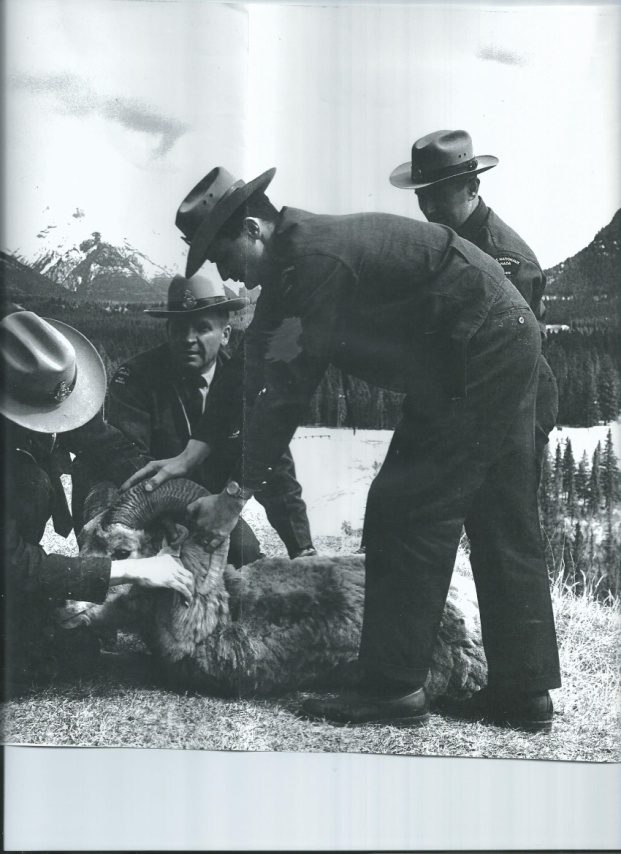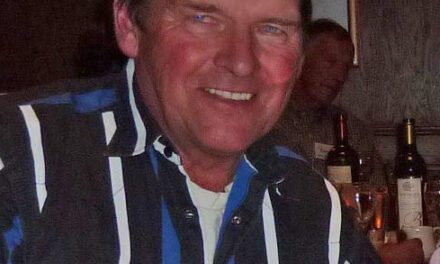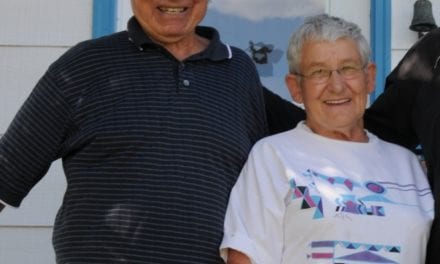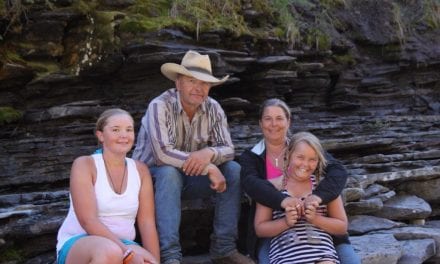(49:38) I think I was there in the best of times…We were a very cohesive group. I actually think our administrators and senior managers were afraid of the warden service because we lived by what the law actually said, not by what people with a lot of money wanted them to say. There is the Parks’ mandate which has many holes in it now. At one time, there were really, really good policy manuals. They were actually approved by parliament, but they were discarded without parliament sanction. I don’t know how they got away with that, but they did. They basically laid the parameters for things. It didn’t say exactly what you had to do, but it laid (out) where the boundaries were.
“What did you like best about being a warden?”
(51:23) Oh, boy…I think that there was a lot of accomplishments done by the wardens. I think everybody accomplished a lot of good things. And I think getting to know a heck of a lot of people (was one of the best parts of the job). I don’t think that there are too many national parks that I haven’t been to in this country. When I was in Halifax, I was also responsible for the security in national historic parks…out east there are probably 60/70 national historic parks. Out west here you just have a little drop in the bucket compared to there. So besides going to the national parks, I also had to go to national historic parks at least once a year and check out their security systems and their security contracts. I actually had designed most of the security systems in some of the more important historic parks and sites in the east coast. We put alarm systems in…actually in one case, which was the Anne of Green Gables house, it was saved because of the alarm system. The alarm went off and the fire department went down there. If there was no alarm system, that place would have burned to the ground. That was actually when I was leaving, so I don’t know what the end result was, what the cause was. But you know some of Canada’s best kept secrets are out east, the Fortress of Louisbourg, Nova Scotia…
“Is there anything you didn’t like about being a warden?”
(54:22) Well, there’s a lot of politics and that was the negative part. But you know what I used to say to people who want to play politics? “Really, if you want to play politics, why don’t (get) elected?” To a degree you have to play the game, but you didn’t have to go as far as some of them go. Oh my god! And some of the people just surround themselves with “Yes” people. As long as the answer is “Yes”, no problem. That was probably the worst part, the politics. Now there were small politics and large politics too. When I was out east there was one particular phone call that really annoyed me. It was from one of the MPs (Member of Parliament) offices. I got a call saying that so and so is going to be coming for an interview. I said, “Okay.” He said, “If you see him make sure that he has got his CV (curriculum vitae/resume) up to date and all this.” The fellow was sort of intimating that they wanted some special favors. Which I very quickly said, “No, that is not how we play the game. It is on merit and only merit…”
(56:51) But it was kind of funny when this bear thing happened in 1980, down here in Whiskey Creek. I was at the hospital because the last guy who got mauled, I wanted to have a talk with him, (to see) if we could actually pin out whether it was a black bear or a grizzly bear because we weren’t sure…I went in and the doctor that was trying to get him stabilized was there. He said, “Now you can talk to him, but make it fast because he is losing a lot of blood.” I asked him a couple of things. I said, “Now what made you go in there?” I said, “Hurry up because they want to get you in there.” Which was a little bit of a pressure thing for him. So he told me, the police were after him. I said, “I think you got your just reward!” Then we went into the operating room and the doctor said, “Well scrub up and come in there with us.” Because I wanted to take pictures of how wide the (bear’s) teeth were apart, the canine teeth…because then we could tell on size and stuff. I went into the operating room and of course I had gloves on and everything, I was taking pictures and all that. The doctor said, “Well here, come and hold the scalp down because the blood is oozing out.” So I did. I was invited in, so I might as well help him! Then I picked out some bear hair that was embedded in the scalp. I plucked them out and I took a close look at them, the tell tale sign of grizzly bear hair was there, you know with the light end and all the rest of it, and the way it felt and that. After we got out, I radioed right down and I said, “Listen, this is a grizzly bear. I’ve got some hair here, definitely a grizzly bear…it is not black bear hair.” But when I got outside the hospital there was this one individual who said, “You know, you guys did a real bad thing about closing down the dumps. A full bear is a happy bear.” And that was the attitude of the people at the time. It was a very typical attitude. Sid Marty actually in his book (The Black Grizzly of Whiskey Creek) was going to put it in his book, who I talked to, but he decided not to because there is still family around. He was an influential person in town that said it. He said, “Open up the dumps again and you won’t have that problem.” We were trying to change people’s minds about all that stuff you know. But it was definitely confirmed then that it was a grizzly bear.
(1:01:00) I usually took the night shift with Dave Cardinal and we used to stake out different places. We actually shot the first bear which in all intents and purposes looked more like a grizzly bear. He had a big hump on him and we shot him down at the garbage holding area for the Caboose Restaurant across the tracks down there at that end of town. I think we got him the second/third night that we were out. Because one of the witnesses identified the bear as a black bear, and this was a huge black bear. We looked at him and we looked at him and decided well you know, this sure in heck looks likes like it was a (grizzly). It was a big, big black bear with a hump, so we shot him. We thought that solved it, but obviously it didn’t. That sold me on using shotguns on bears, because one of the SSG slugs went into his brain and killed him. Dave had a 270 and he shot twice and both of them went right through him, didn’t hit a bone unfortunately. But the shotgun, I shot twice with the shotgun and got him right in the head and one pellet in the brain killed him.
(1:02:34) Now, I took that bear to Calgary to the lab. There is a funny story here. I took my own car and actually Marion was with me. We put him in the trunk and it was a hot day. So we were in Calgary, I think it was at 14th Street, at the intersection and we stopped. Of course we had to keep the windows down because of the bad smell. We were sitting there at the lights and a couple of fellows from either side had their windows down and they kept looking at us because of that smell! Then we decided we’d better get going here and we went to the Airdrie lab and there was media all over the place because they thought that we were coming. We stopped at this place where they were trying to see who was (coming in). They were expecting a park truck and I had my own car. They said, (“What are you doing?”) I said, “Oh, we are just a bunch of turkey farmers and we’ve got a couple of dead turkeys in the trunk and we are getting them tested.” And we just kept going! And you do that with a straight face. We were never squirmed, they had no idea what was going on. Those are some of the fun times!
“How did the service change over the years?”
(1:4:23) Well, I think initially there was a lot more emphasis on doing things on the ground and seeing some results. In other words, there were a lot more campgrounds open, and they were in better shape. The signs were in better shape, you could actually see them instead of them all being bleached out. There was a lot more emphasis on keeping the facilities half decent for people. I think Parks staff then knew a heck of a lot more about the Parks than now. We had the wardens in the backcountry all the time. I spent about three summers in the backcountry, one at Egypt Lake and two at Bryant Creek, all summer long. So I had my backcountry stint. It wasn’t the deep backcountry. Mind you in the fall we used to go on boundary patrol up to Indianhead…you know when you are freezing on your horse and then it’s hard to get off when you get there. And going across the pass and you can’t see the trail, but the horse knows where it is…That really doesn’t exist anymore. Parks wants to get in more people and the only thing I can suggest is well maybe you should keep your facilities up. Open up some campgrounds so people have a place to go. Push the stuff that the parks are here for, not the hang-gliding stuff and stuff like that that they are trying to dream up now…Of course most of the money from the field has been swallowed up at headquarters after they were actually supposed to have shrunk, but they didn’t. I understand from sources that they have hired a huge number of people to try and dream up things to bring the tourists in. Well you know, if you have an attraction that is attractive and sell it for what it is here for, nature and wilderness, people will come because that is what they like. To give an example a lot of Europeans definitely preferred Yoho to Banff for hiking because there we tried to keep the horses and the hiking apart, so that the trails wouldn’t all get smashed. In Banff well you know you’ve got to darn near wear gum boots in order to go hiking because of all the mud…
(1:07:34) When I was in Yoho we closed the McArthur Valley for people totally. We wanted an area where bears could just be bears. We had a mauling there, so we decided there are so many bears in that area that we will close it. You know, a small valley for bears is not too much to ask. Well, there was a huge outcry for doing that, including from our own managers in Calgary and in Banff because we were closing off an area. It’s not much of an area and we just don’t have the manpower to monitor (it, even) to have periodic closures because there were too many bears in there to even warrant it. Every time you go through there, you see two/three/four bears. The density there was very high. The bear that mauled this fellow took off there. We know where he went…we were able to follow him using the forward looking infrared over a pass and then we lost him, but that is where he went into. Now they are closing the 1A, mind you it took damn near a century to come to that conclusion and then another century to tell people. I’m exaggerating there, but everything seems to take so frigging long to do things and that is why very little is accomplished…But you know, in a way I guess it is a sign of our society because look how long it has taken for this Keystone decision and how long has it taken for the Northern Gate Pipeline and all that. They spend more time planning and justifying then actually doing and some of these things are just foregone conclusions, so let’s get on it with it…
“What about the warden service was important to you? Was it the idea of protecting national parks?”
(1:10:14) Yes, that was the main idea exactly. And right now nobody really knows what is being taken in the backcountry because very few people are out there. Then the whole idea about other parks staff being out there, being the eyes and ears, puts those guys in real jeopardy because what if something goes wrong? They have no protection. They don’t have any protection civilly, whereas a park warden does. But our senior people just don’t see that part of it. I don’t think that too many people, too many parks staff that go out there would start reporting things because as you know, a lot of these things are really nothing at the end when you look at it. They probably don’t want to be labeled as a tattle tale…If they get information from other people, that is good, but that is only a small portion of what needs to be done…The problem is that if there is a problem in an area that they stumble across, then all the effort is put in there and everything else is forgotten. That is basically a reactive philosophy rather than a preventive (one). I think that most of it now is reactive.
“Were there any legends or stories of people that stick out in your mind?”
() Well there was Shepherd who decided to take a pistol into a bar. (Hal Shepherd was a decorated veteran of the Second World War and the chief warden of Yoho National Park. I kind of think that was in the Field hotel. And believe it or not I knew him. Myself and Dale Loewen once went and visited him when we had a course over there somewhere…He retired somewhere around Sicamous.
(1:14:54) Another fellow you probably heard about is Jimmy Rimmer. You know he was in the Palestinian conflict as a mercenary. Of course, Jimmy Rimmer you know, he liked mushrooms. He would go pick mushrooms. He would make his meal with mushrooms and before he ate, he would what kind of mushrooms he had and put the note on the kitchen table, “If you find me dead, here’s what I ate!”…I knew him very well, because I knew him when he was at Stoney Creek. I used to go down there and we used to climb up one of the ridges and collect sheep pellets. We had some real hair raising times there. We were up on an avalanche slope going straight up…we got about half way up this huge slope with the sheep being up on top and the next thing we hear is “WHOOSH” and everything settled. Good thing because it could have slid too and we would have both been gone. He used to make clam chowder after we got back to the Stoney Creek house. He was quite a fellow. He spent all winter trying to dig himself out of there so that he could get his car into town and by spring he finally got there! Yep, he was quite the fellow. He froze his toes off too on one of his trips up the Pipestone. He was a very stubborn fellow, he would do stuff and you would just think, “Oh, he is crazy.” Except we had him licked one time, we told him that he has to call in, it is a must. “If you don’t call in, we come looking for you with the helicopter in the wintertime.” Of course he knew that helicopters were expensive. That was when I was at Lake Louise. So he didn’t call in and the next morning he didn’t call in, so we went out looking for him in the helicopter. Was he embarrassed, he said, “I thought that you were just kidding.” I said, “No, I don’t kid about stuff like this.” He never did that again!

Paul Kutzer and fellow wardens tagging a bighorn ram.
“Is there anything about the warden service as you knew it, that you would want future generations to know?
(1:18:53) I think that there is enough written and if they read some of (Sid) Marty’s books…he was a good writer, I mean he took some artistic liberties but that is okay, that makes good reading. (I think that if they did, a lot of the stuff he’s got there, there is a lot of truth in that….although at the time when you read it, it’s like, “Oh come on, you’re overplaying it.” Well, I don’t think he was… and I don’t think that it will ever go back to the way it was. I really doubt that. Although I think for the parks purpose it was probably a lot better system then what is there now, a much better system for the parks…There are some things I hope that they will put back in again, I think maybe over time they will. I think the generalist role of the warden was probably more effective than what they are doing now, way more. Right now I think that in some areas they are leaving the parks…wide open from a safety aspect for the wardens because they don’t have anywhere near enough (manpower). There is no backup and in some areas they only have one (warden). Where are you going to get help from? There are so many things that are sort of intertwined with the enforcement part, such as the bear management. It is so closely intertwined, why separate it? Even the whole wildlife management, not the research…fire management, well not the patrolling for fires because that is part of fire management and I don’t know what you are going to do if you find somebody with an illegal campfire because you can’t do anything, you’ve got no power. There are bits and pieces in all that stuff that is related to having enough authority to do something, whereas right now they don’t. And if they try to pretend they do I think that they are just fooling themselves and they could get themselves into a lot of trouble. It was kind of funny in a way because when they were talking to people about the hazards in the job the ones…that had their lip up more as far as the dangers were concerned…were never consulted. Now I know others that got into real close calls and I decided for myself that they weren’t consulted. They just didn’t want to hear it…why confuse the issue with facts?



